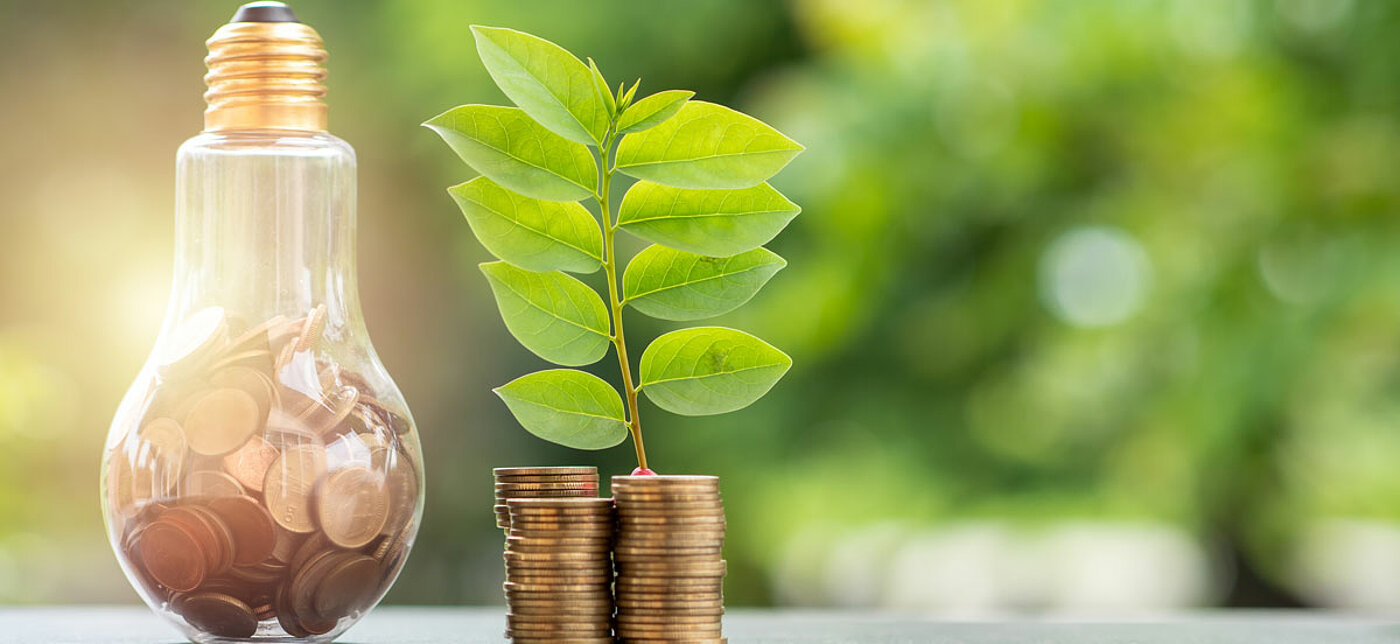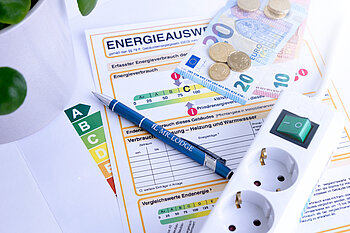Throughout the apartment
- Ventilate properly
Ventilate briefly and vigorously every day with the windows wide open. Airing out rooms in bursts ensures that the air is exchanged, but furniture and walls retain the heat. Tilted windows are quickly forgotten and cool the rooms down a lot. - Switch off the light
Rooms are often lit when nobody is in them. Therefore, only switch the light on in areas and at times when it is really necessary. - Multiple plug with switch-off button
The power consumption of standby appliances accounts for 4-10% of total consumption each year. You can easily reduce power consumption by using a multiple plug with a switch-off function. - Heat less
If you lower the room temperature by 2 to 3°C to 19 to 20°C, you will save around 10 to 20% heating energy.
In the kitchen
- Use the warm-up phase of the oven
If you use the warm-up phase during baking, you can save up to 20% energy. Many recipes recommend preheating so that the baking time is correct. However, this is not necessary. There are already some recipes that take this into account. - No hot food in the fridge
If you have a portion left over from lunch, you should let it cool completely before putting it in the fridge. The fridge has to compensate for the sudden heat in the compartment by cooling more. This costs electricity. Defrost frozen food overnight in the fridge and use the coldness of the frozen food. This saves electricity. - Kettle instead of pot
Use a kettle to boil water and only fill it with the amount of water you need. One liter of unused water per day adds up to 25 kg ofCO2 per year. - Depending on the type of stove and type of pots, turn the temperature down in good time
Use the residual heat from the hob when cooking. Switch off the electric hob about 5 minutes earlier. The residual heat is usually sufficient to continue heating pans and pots for a while.
In the bathroom
- Showering instead of bathing
Take a short shower instead of a bath. On average, you use
15-20 liters of hot water per minute. A normal bathtub holds approx. 150 liters. Limit your shower time to 3-7 minutes. A cool shower is also healthier than a shower or bath that is too hot. - Washing laundry properly
Load the machine as full as possible. The energy used by the washing machine is only used to its fullest when it is filled to the maximum. The prewash program is not necessary. As a general rule, you should not wash clothes too often in order to preserve their longevity. You can also turn the temperature down a little when washing: 30 or 40°C is usually enough - use the ECO program. - Tumble dryer
A tumble dryer is rarely really necessary. Almost all residential complexes have drying rooms for laundry. Air drying on the balcony in particular is possible in both summer and winter. Your clothes will also thank you if you decide not to tumble dry them. - Cold water for hand washing
If you wash your hands for 30 seconds, almost 3 liters of water rush through the tap. However, hot water requires far more energy than cold water. However, if you wash your hands thoroughly with soap, the water temperature has no effect on cleanliness.
In the bedroom
- Temperature for optimal sleep
The optimum temperature for our airways is 18°C. In the bedroom, however, 16 - 17°C is perfectly adequate. The lower room temperature not only saves energy, but also protects the mucous membranes and makes a positive contribution to the quality of sleep.
You can find more tips on how to reduce energy costs in road traffic in the following article in the Süddeutsche Zeitung >> read here





